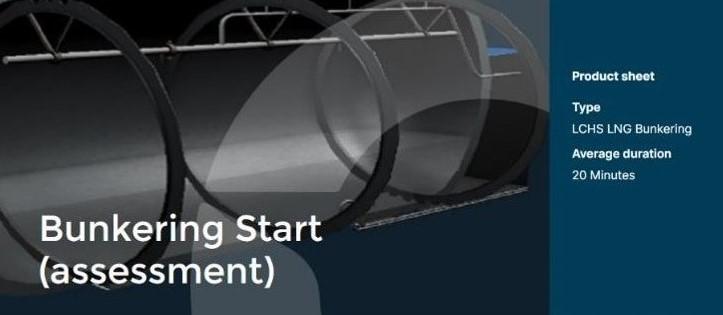Decarbonization leads to increased regulatory requirements, new cargo-owner and consumer expectations, and more rigorous demands from investors and institutions -DNV. The shipping industry continues introducing liquefied natural gas (LNG) as a key alternative fuel for new ships. Consequently, the global market for LNG-powered ships and the demand for LNG terminals has been growing.
In 2015, the International Maritime Organization adopted worldwide regulations for ships powered by liquefied natural gas. The International Code of Safety for Ships using Gases or other Low-flashpoint Fuels (IGF Code) is designed to ensure that the safety level of ships using LNG and other more environmentally friendly fuels is enhanced and made more homogeneous. In 2017, the regulations entered into force.
IGF CODE TRAINING
With the global decarbonization targets and the growing demand for dual-fuel ships, it is crucial that crews be trained in carrying out safe operations on these new and technically advanced vessels.
In cooperation
with Aboa Mare, a maritime academy in Finland, GigaMare offers comprehensive
Basic (A-V/3, paragraph 1) and Advanced (A-V/3, paragraph 2) training for
personnel on ships subject to the IGF Code. Furthermore, as a member of The Society for Gas as a Marine Fuel (SGMF), participants of the course may benefit with GigaMare's first-hand access with industry information including technical, regulatory, and operational developments.
GigaMare's Basic and Advanced IGF Code courses adhere to the International Convention on Standard of Training, Certification, and Watchkeeping for Seafarers (STCW). These Finnish Flag State-approved courses also include practical firefighting exercises.
The Basic level course provides education and training to all seafarers responsible for designated safety duties associated with the care, use, and emergency response of vessels using fuels within the IGF Code. The Advanced level course intends to provide advanced training for masters, officers, and all personnel with immediate responsibility for the care and use of fuels and fuel systems on ships subject to the IGF Code.
Safety, reliability, and dependability: Imo.org cited that the basic philosophy of the Code is to provide mandatory criteria for the arrangement and installation of machinery, equipment, and systems for vessels operating with gas or low-flashpoint liquids as fuel to minimize the risk to the ship, its crew and the environment, having regard to the nature of the fuels involved. Likewise, GigaMare's IGF Code courses focus on the relevant engineering principles, safety precautions, and operation on a ship subject to the Code.
The Finnish Maritime Authorities approve that the required 30 sea days on board an IGF ship, including three LNG bunkering operations for the Advanced certificate STCW Regulation V/3 [8.2], can be substituted with a separate IGF simulator course.
In line with the required conditions for being awarded a certificate of proficiency of advanced training for the crew of ships subject to the IGF Code, the Finnish Maritime Authorities approved that in the required one month of seagoing service, which covers at least three LNG bunkering operations on a vessel subject to the IGF code or on a vessel whose fuel is subject to the IGF code, two of the three refuelings can be carried out on a simulator in accordance with paragraph 2 of the A-V/3 regulation of the STCW convention.
SIMULATION FOR ENHANCED LNG BUNKERING TRAINING
GigaMare's R&D team had come together to create an LNG Bunkering VR simulator to offer training on the safe handling of LNG systems. The virtual reality environment of the simulator provides an immersive learning experience focused on preventing hazards on a ship subject to the IGF Code; operators will be able to practice safe bunkering and securing of the fuel. The design is based on the new generation of vessels that runs sulfur-free liquefied natural gas (LNG). Simulation scenarios include safety procedures during bunkering operations with the supplying vessel, nitrogen purging, and loading operations through the Bunkering Operating Panel.
Watch the video and get a glimpse of GigaMare's enhanced LNG bunkering training through VR simulation.
Further, GigaMare also offers an advanced solution to support the competence development of the IGF Code courses' participants. This cloud simulation is a cost-effective, rapidly deployable, and endlessly scalable tool for verifying and sharpening seagoing personnel's critical bunkering skills and know-how. Furthermore, through the risk-free environment of a simulator to train, this cloud simulation is an effective learning environment for seafarers and an efficient way for the principals to assess their crew.
